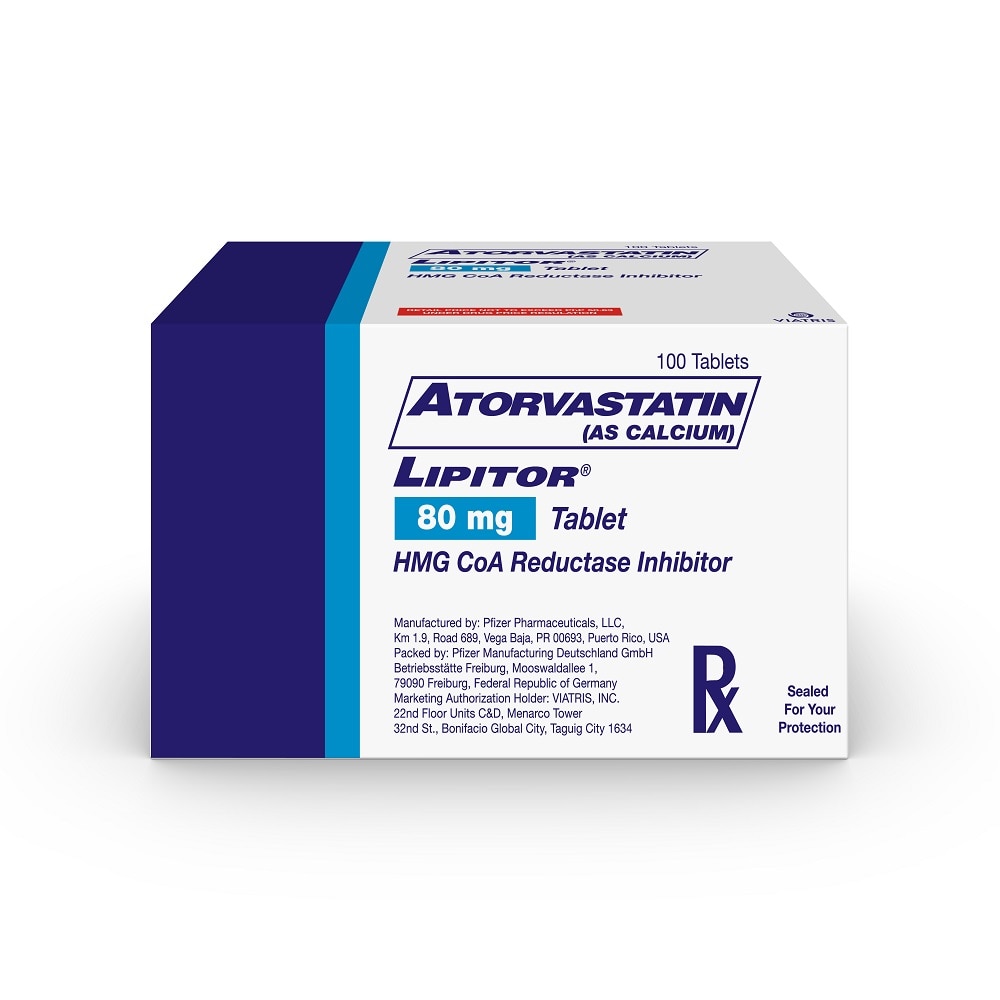Lipitor: Health Benefits & Risks
What are the health benefits of Lipitor?
Lipitor is a brand name for the generic medication atorvastatin, which belongs to a class of drugs called statins. Statins are used to lower cholesterol levels in the blood, specifically low-density lipoprotein (LDL) cholesterol, often referred to as “bad” cholesterol. Some of the health benefits of Lipitor (atorvastatin) include:
- Lowering LDL cholesterol: Lipitor works by inhibiting an enzyme in the liver involved in the production of cholesterol. By lowering LDL cholesterol levels, Lipitor helps reduce the risk of plaque buildup in the arteries (atherosclerosis), which can lead to heart disease and stroke.
- Raising high-density lipoprotein (HDL) cholesterol: Lipitor can also increase levels of HDL cholesterol, often referred to as “good” cholesterol. HDL cholesterol helps remove LDL cholesterol from the arteries, reducing the risk of plaque buildup.
- Reducing triglycerides: Lipitor can lower levels of triglycerides, another type of fat in the blood that can increase the risk of heart disease.
- Reducing the risk of heart attack and stroke: By lowering LDL cholesterol levels and reducing plaque buildup in the arteries, Lipitor can help reduce the risk of heart attack, stroke, and other cardiovascular events in people with high cholesterol or other risk factors for heart disease.
- Slowing the progression of atherosclerosis: Lipitor has been shown to slow the progression of atherosclerosis and reduce the risk of cardiovascular events in people with existing heart disease or who are at high risk for heart disease.
- Improving cardiovascular health: Lipitor can improve overall cardiovascular health by reducing inflammation in the arteries and improving endothelial function (the function of the cells lining the arteries).
It’s important to note that while Lipitor can be effective for lowering cholesterol and reducing the risk of heart disease, it can also cause side effects and may not be suitable for everyone. It’s essential to use Lipitor only as prescribed by a healthcare provider and to follow their instructions carefully. If you have any questions or concerns about Lipitor, talk to your healthcare provider.
What are the health risks of Lipitor?
Lipitor (atorvastatin) is generally considered safe and well-tolerated for most people, but like all medications, it can cause side effects and carry certain health risks. It’s important to be aware of these risks and discuss them with your healthcare provider before starting treatment. Some of the health risks associated with Lipitor include:
- Muscle problems: Lipitor can cause muscle pain, tenderness, or weakness, which can be a sign of a rare but serious condition called rhabdomyolysis. This condition can lead to kidney damage and other complications.
- Liver problems: Lipitor can affect liver function, leading to elevated liver enzymes or liver damage. Your healthcare provider may monitor your liver function with blood tests while you are taking Lipitor.
- Increased blood sugar levels: Lipitor can increase blood sugar levels, especially in people who are already at risk for diabetes. Your healthcare provider may monitor your blood sugar levels while you are taking Lipitor.
- Interaction with other medications: Lipitor can interact with other medications, especially those that are metabolized by the liver or affect liver function. It’s important to tell your healthcare provider about all medications you are taking, including over-the-counter medications and supplements.
- Allergic reactions: Some people may experience allergic reactions to Lipitor, including rash, itching, swelling, or difficulty breathing. These reactions can be serious and require immediate medical attention.
- Memory loss or confusion: There have been reports of memory loss or confusion in people taking statins like Lipitor, although the risk appears to be low. If you experience memory loss or confusion while taking Lipitor, talk to your healthcare provider.
- Digestive problems: Some people may experience digestive problems, such as nausea, diarrhea, or constipation, while taking Lipitor.
It’s important to use Lipitor only as prescribed by a healthcare provider and to follow their instructions carefully. If you have any questions or concerns about Lipitor, talk to your healthcare provider.
TL;DR: Lipitor Summary
Lipitor is a brand name for the prescription medication atorvastatin, which belongs to a class of drugs known as statins. It is commonly prescribed to lower cholesterol levels and reduce the risk of heart attack, stroke, and other cardiovascular conditions in individuals at risk of cardiovascular disease.
Atorvastatin works by inhibiting an enzyme in the liver that plays a key role in producing cholesterol. By reducing the production of cholesterol in the liver, Lipitor helps lower LDL (low-density lipoprotein) cholesterol, also known as “bad” cholesterol, and triglycerides while increasing HDL (high-density lipoprotein) cholesterol, also known as “good” cholesterol.
Lipitor is typically taken orally in tablet form, once daily, with or without food. The dosage of Lipitor will vary depending on the individual’s cholesterol levels, medical history, and response to treatment.
Common side effects of Lipitor may include muscle pain, weakness, stomach pain, constipation, and nausea. More severe side effects may include liver problems, muscle breakdown, memory loss, and an increased risk of diabetes. It is important to seek medical attention if you experience any severe or persistent side effects while taking Lipitor.
Lipitor can interact with other medications and supplements, so it is important to inform your healthcare provider about any existing medical conditions or medications you are taking before starting treatment with Lipitor.
It is vital to follow your healthcare provider’s instructions closely while taking Lipitor and to attend regular follow-up appointments to monitor your cholesterol levels and response to treatment. Do not stop taking Lipitor abruptly, as this can lead to a rebound increase in cholesterol levels. Talk to your healthcare provider if you wish to discontinue Lipitor or if you have any concerns about taking the medication.
If you have any questions or concerns about taking Lipitor, be sure to discuss them with your healthcare provider. It is important to seek medical advice if you have any concerns about your cholesterol levels or experience any negative side effects while taking Lipitor.




